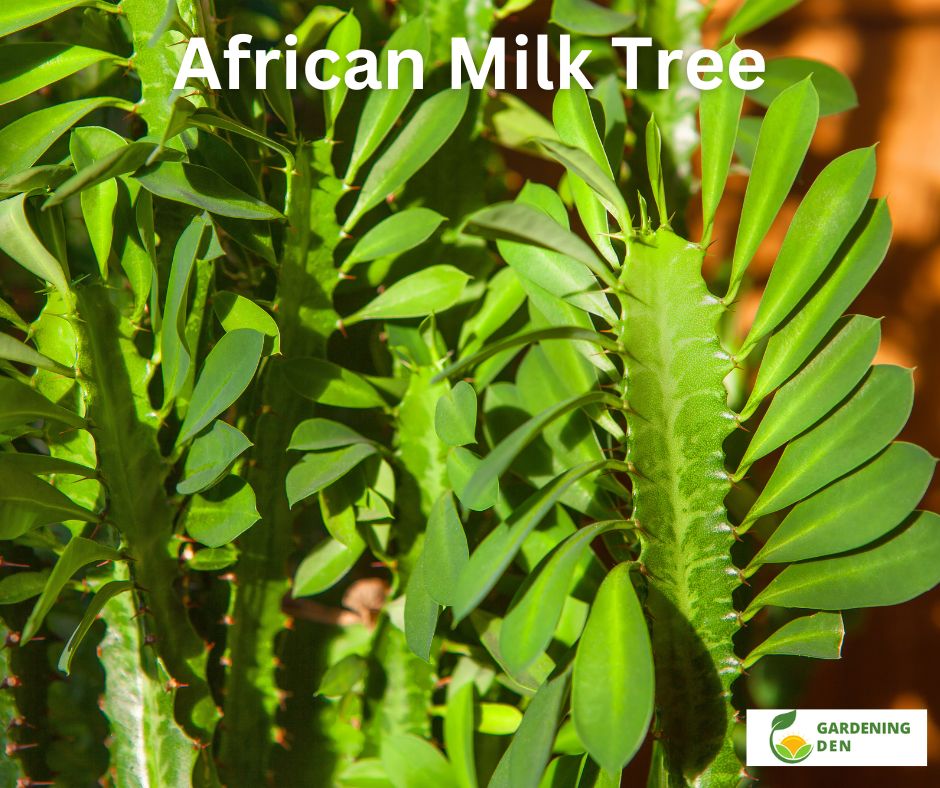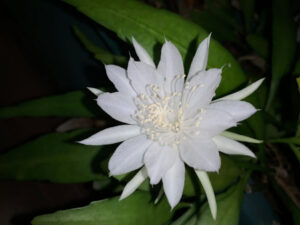The African Milk Tree, scientifically known as Euphorbia trigona, has garnered attention not just for its striking visual appeal, but also for its myriad of health advantages. This succulent, with its fleshy green stems and unique architectural form, is more than just an ornamental marvel; it harbors a treasure trove of benefits that can enhance your well-being in surprising ways. Whether you are a seasoned plant enthusiast or a curious newcomer, uncovering the advantages of the African Milk Tree may just transform your perception of this remarkable species.
The African Milk Tree, native to Western and Central Africa, is characterized by its milky latex sap, which is a distinguishing feature among Euphorbiaceae. While its aesthetic qualities are often highlighted, it is essential to delve deeper into its reputed health benefits, captivating our curiosity about how this plant contributes positively to our lives.
One of the most compelling reasons to embrace the African Milk Tree is its potential air-purifying qualities. Studies have indicated that certain houseplants can enhance indoor air quality by absorbing toxins and releasing oxygen. The African Milk Tree is no exception. By incorporating this green ally into your living space, you could potentially reduce harmful air pollutants. It is not merely a feather in the cap of interior design; it forms the cornerstone of a healthier environment, invigorating your surroundings.
Moreover, the sap of the African Milk Tree, while toxic in large quantities, has been used in traditional remedies. This unconventional aspect deserves exploration, as it speaks to the duality of nature’s creations. The milky sap possesses certain anti-inflammatory and antiseptic properties, which can be beneficial when applied topically (though caution is paramount). Recognizing the fine balance between nature’s gifts and the potential hazards they entail encourages a deeper respect for our botanical counterparts. With proper knowledge and responsible usage, the African Milk Tree bridges the gap between danger and healing.
While embracing the aesthetics and health perks, one must also consider the psychological benefits of having plants indoors. The mere presence of greenery can reduce stress, enhance mood, and promote overall mental well-being. Studies show that just looking at plants can evoke feelings of calmness and contentment. The African Milk Tree serves as an emblem of vitality, fostering an environment of tranquility and creativity. In a world filled with chaos, nurturing a living organism can reinvigorate the spirit and provide solace.
Furthermore, the African Milk Tree is a low-maintenance companion, appealing to both novice and experienced gardeners. Its ability to thrive in optimal conditions with minimal care ensures that you can enjoy its benefits without overwhelming responsibilities. Proficiently adapting to diverse environments, it flourishes in a wide range of light conditions, proving to be resilient and adaptable. This quality not only adds to its allure but also makes it a perfect fit for urban dwellers who may lack gardening expertise yet long for a touch of nature within their homes.
In addition to its aesthetic and psychological rewards, the African Milk Tree has garnered attention for its potential medicinal properties. Ethnobotanical practices in certain cultures have utilized various parts of the plant for medicinal concoctions. The latex has been employed in traditional treatments to address ailments such as warts, ulcers, and even gastrointestinal disturbances. Though scientific backing is still being explored, the existing folklore surrounding this plant speaks volumes about its perceived efficacy. Delving into this aspect opens up avenues for further research on the wondrous capabilities of botanical remedies.
Moreover, the African Milk Tree is frequently praised for its symbolic significance. In various African cultures, it is associated with concepts of strength and resilience, embodying the ability to thrive in harsh conditions. This symbolic representation can inspire individuals who cultivate it to consider their own journey towards resilience. By bringing this plant into your home, you not only elevate your physical space but also invite a daily reminder of endurance and tenacity, attributes that are universally resonant.
Interestingly, the African Milk Tree also contributes to the biodiversity of flora in cultivating regions. Advocates for sustainable gardening emphasize the importance of diversifying plant selections, and including this succulent enriches local ecosystems. By encouraging pollinators and supporting soil health, it creates an interconnected web of life that is critical to plant health and environmental stability. Embracing the African Milk Tree signifies a commitment to nature and its preservation.
In conclusion, the African Milk Tree extends beyond the domains of aesthetic appeal and home improvement. Its potential air-purifying qualities, medicinal properties, and psychological benefits offer a holistic array of advantages. Embracing this remarkable plant can lead to a profound shift in lifestyle, stimulating a greater appreciation for the interplay between flora and human health. As awareness of sustainable practices and natural remedies burgeons, the allure of the African Milk Tree will only continue to captivate those searching for balance and enrichment in their lives. Discover the transformative possibilities held within this unique succulent and allow the African Milk Tree to become a vibrant part of your journey towards wellness.




Leave a Comment